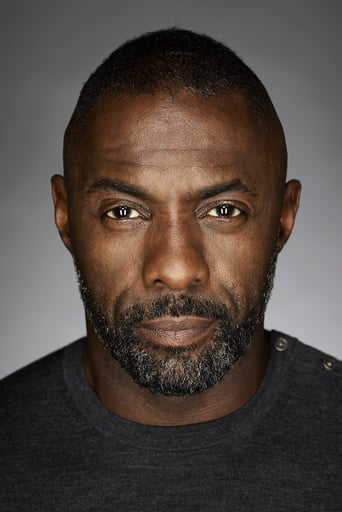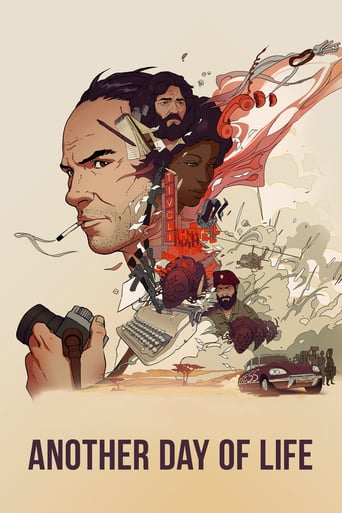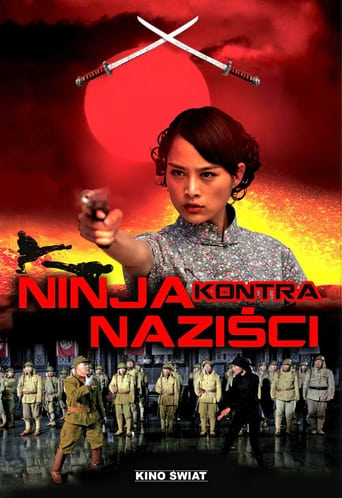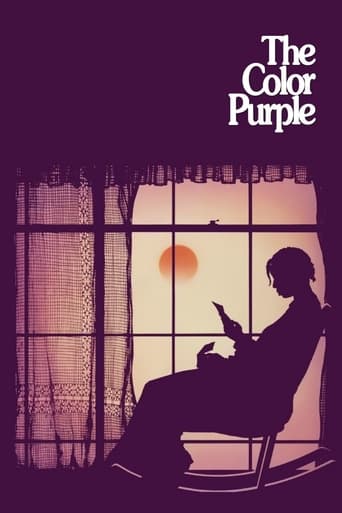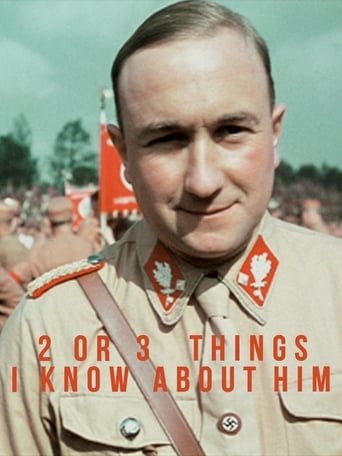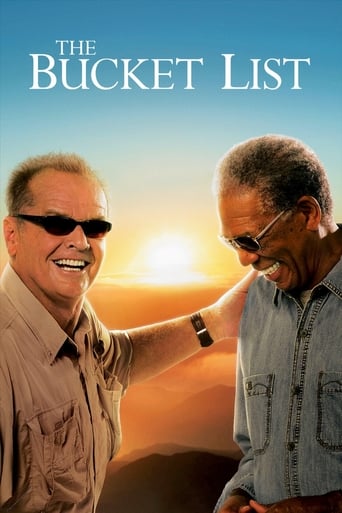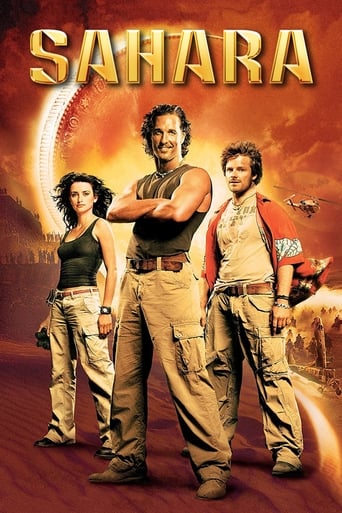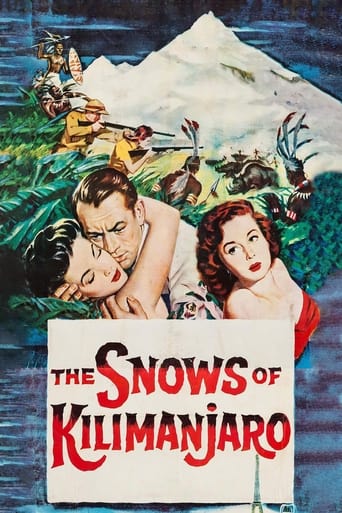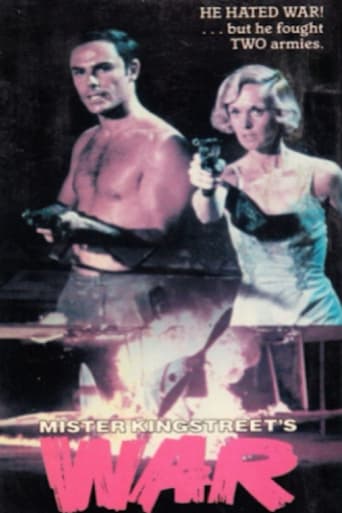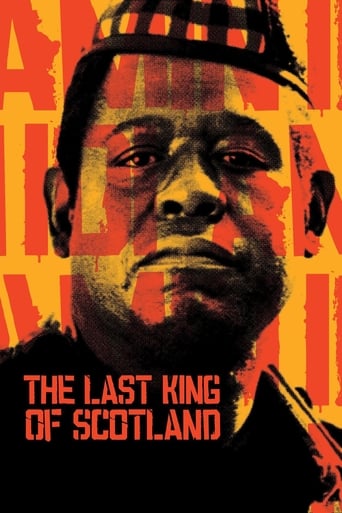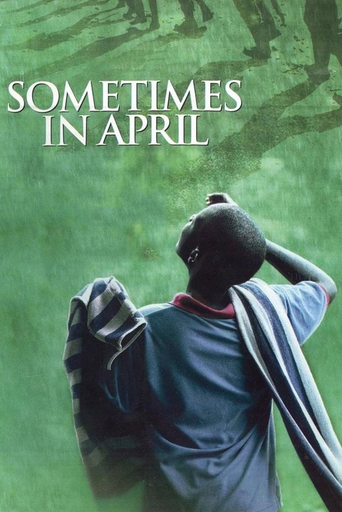

Sometimes in April (2005)
Two brothers are divided by marriage and fate during the 100 horrifying days of the 1994 Rwandan genocide.
Watch Trailer
Cast


Similar titles
Reviews
This is a very powerful movie. Presented in a somewhat documentary style as far as subtitles. Was very hard to watch. Had to pause the DVD and walk away a few times to catch my breath. Watching this instilled even more how useless the United Nations really is and how hypocritical and asinine the American politicians and spokespeople were during Clinton's administration. So sad the world let this happen and now it's repeating itself in the Congo. Again - Where's the U.N.? Debating BS as usual and doing noting but putting their heads in the sands. They were formed to stop things like this from happening again, but it just shows the world what a USELESS ORGANIZATION the United Nations really is.WARNING - this really is a powerful and hard-hitting motion picture and not sanitized like Hotel Rwanda, which in itself was also a very good motion picture. If you watch with young kids, you will have to stop and explain things. Not for the faint hearted or young children. Graphic "real live" camera video from the actual genocide that took place in Rwanda.
"In the end, we will remember not the words of our enemies, but the silence of our friends." Martin Luther King, Jr.(Opening quote from the film) After I saw the Hollywood's multiple Oscar nominated film "Hotel Rwanda" (2004) in a regular theater, I could stand up and be counted as one who thought that that the noble efforts of a hotel worker (based on a real person who worked at Hotel des Mille Collines) to save so many lives and worth emulating, if we were ever to be in his shoes.Just a few days ago I chanced to see "Sometimes in April" (2005), on the Rwandan massacre on television's HBO channel, released a year after "Hotel Rwanda." You begin to wonder why so few have written about this wonderful little film made for TV, partly with US financial support. This small film is undoubtedly far superior to the acclaimed Hollywood product in both content and style, even though the subject matter of both films pertain to the real events that surround the genocide in Rwanda.Yet the two movies are as different as chalk and cheese. To any discerning viewer "Hotel Rwanda" would be easily identifiable as a commercial effort using "star" power of Don Cheadle, Nick Nolte and Joaquin Phoenix to highlight one of history's darkest chapters by developing a "feel good" screenplay that builds on the typical Hollywood mantra of success: an individual's heroic acts against all odds. It won some Oscar nominations (two of those were predictably for acting), a minor Toronto festival award and an Irish award. But the film did not make the competition grade of Cannes, Berlin or Venice.Then a good one year later, along comes "Sometimes in April" made with one big star name Debra Winger and loads of African actors. The Africans are so realistic in their roles that Cheadle's laudable effort pales in comparison. In contrast to the Cheadle film, "Sometimes in April" was nominated for the Golden Bear at the prestigious Berlin Film Festival, won the best film award at the Durban International Film Festival, and a minor award in Norway. What is startlingly different is the mature screenplay and direction that approaches the genocide not merely by concentrating on individual heroism but discussing some key facets on genesis of the genocide, the international reaction to the genocide and the aftermath of the genocide when the international community woke up to the genocide and brought a few perpetrators to face justice.What makes Raoul Peck's "Sometimes in April" tick? Minutes into the film and the viewer will realize the scriptwriter knows Africa well. Radio is the mass medium in most parts of Africa, not the newspapers or the TV. If a popular radio host decides to call the Tutsi community "cockroaches" that need to be exterminated thousands of listeners will accept the verdict because they have no access to another viewpoint. That is precisely what happened. That's the power of radio in most parts of Africa. Hate spewed out of a radio station and countries that had the power to jam those broadcasts, refrained from doing so in the name of "free speech" and "democracy" as death tolls rose to 8000 victims a day. Western nations and the UN did interveneonly to rescue expatriates, Tutsis did not matter. Christian priests in the film are shown as reluctant collaborators as they are forced to identify Tutsis taking refuge with them so that other Tutsi's might survive the carnage. The high point of the movie for me was when Hutu girl students of a convent school collectively refuse to be saved from death and stand as one only to be butchered when vigilantes try to identify and kill Tutsi students. And this is not fiction but a fact. (For those who care to read about the subject I suggest Lt. Gen. Roméo Dallaire's book "Shake Hands with the Devil: The Failure of Humanity in Rwanda.") How else is "Sometimes in April" different from "Hotel Rwanda"? The core strength of the film lies in its attempt to analyze the effect of the difficult period on Rwandans right up to the recent past. The film examines the conflict of interest of Hutu soldiers who carry death lists of good Tutsis as good soldiers. It examines the conflicts of families with spouses from the two communities. The film explores family bonds that rise above career interests (here those of a radio host). There are shots of women who prefer to blow themselves up than be raped again and again. Finally, the film looks at how individuals facing trial accept their guilta very rare example in cinema.The director of "Sometimes in April", Raoul Peck is an unusual filmmaker from Haiti switching between documentary and feature films with remarkable felicity. He grew up in Zaire (Congo) and then lived in France. Peck served as Haiti's Minister of Culture similar to the honor accorded by Greece to late actor Melina Mercouri. Peck's first feature film feature L'homme sur les quais (1993) (The Man by the Shore) was nominated for the Golden Palm at Cannes in 1993. His documentary film "Lumumba" has been hailed by critics and I look forward to see it. He has already won a lifetime award from the Human Rights Watch in New York and the Nestor (cinematographer of Mallick, Rohmer and Truffaut) Almendros prize. Evidently Peck is a director worth noting.It is interesting to note that the last words that flash on the screen as the film ends are "Never forget". I will not forget this film and what this film has to offer for any viewer. One should not forget the bigger picturePeck's film is not about Rwanda alone, it is about human actions and the consequences anywhere. That's what makes the film interesting. Thank you, HBO. Thank you, Mr Peck.
A film such as Sometimes in April, could never be described as entertaining, for who could be entertained by mass genocide ? What is is though, is a very necessary film which is brave enough to put the spotlight on a part of history that many would prefer to forget. By doing so, and doing it as factually as possible, telling what happened and not covering it up, it remembers and honors the over 1 million people who died during the Rwandan genocide. This film does all of this extremely well, and because of that its not an easy film to watch, especially the scenes of the westerners and Europeans leaving, or of governments not caring enough to stop the carnage, much less give the name genocide to it. This or some other film much like it such as Hotel Rwanda, should be compulsory viewing in schools so that we do not forget that we were the ones who turned our backs when we could of helped, so that in the future, we will not do that again.
This movie is totally unknown in my country (Venezuela), even I saw it already knowing the great programming of HBO and seemed me interesting to be able to see fund what happened in Rwanda in 1994, and how better movie to teach it that this.. Clearly that is seen that is through the history of two brothers of different ethnic groups, but the plot in general gives a great idea of what happened in those dates in that almost unknown and hidden African country. I will be quick to see "Hotel Rwanda" to remain clearer on the theme and more cultured with regard to these historic events. All the actions were very good and I congratulate them HBO staff, channel which transmits pretty good programming that I seen as long as I could.


